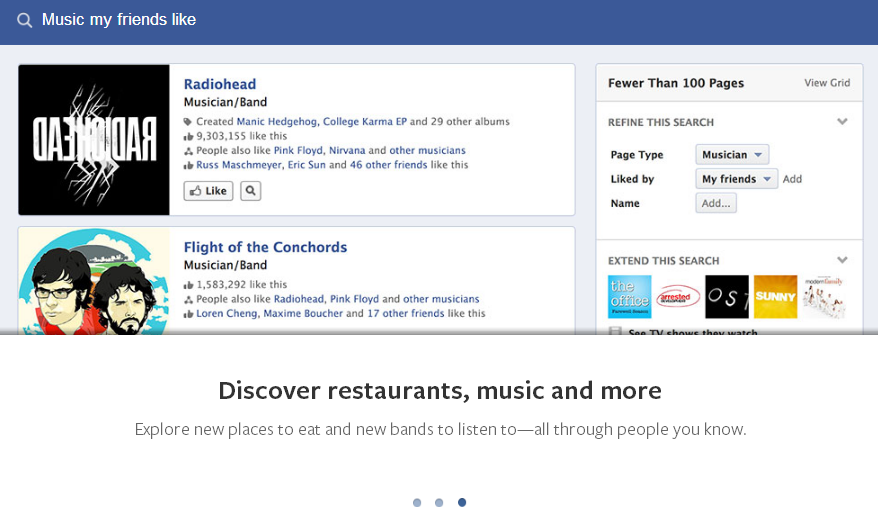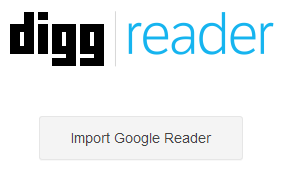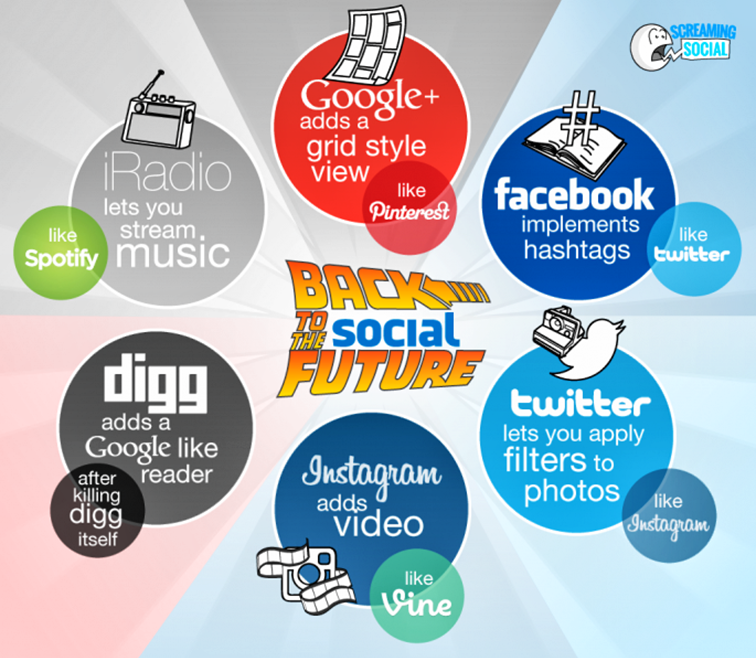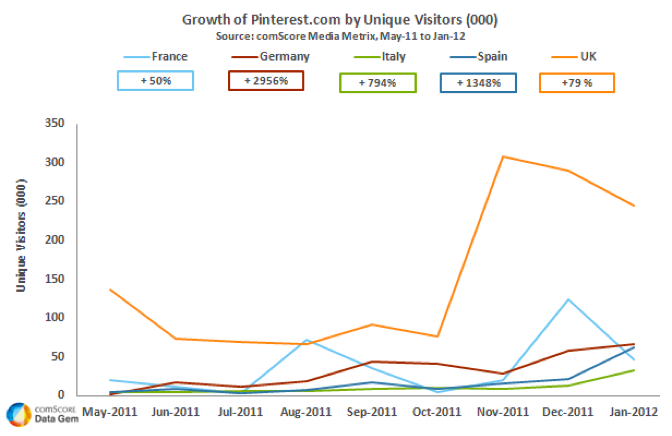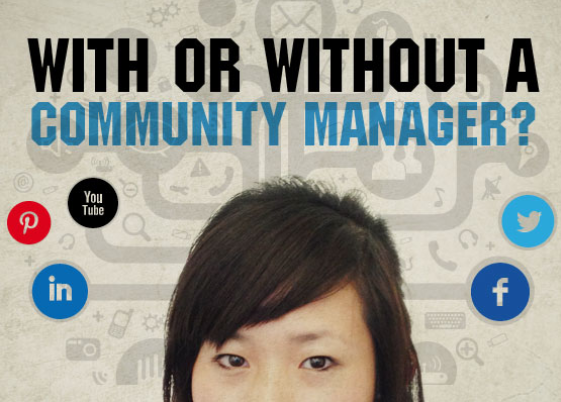
Community management, a comparatively new role, has fast become an important requirement in the online marketing mix with brands asking what key requirements make a successful community manager.
Company and brand-led social media communities require a dedicated manager who can post updates, answer customer questions and concerns as well as moderate broad conversations and themes to ensure that a community remains active. 1 in every 5 community managers sit agency side according to research by Social Fresh, the roles are being effectively split between agencies and large companies who have an active community that needs to be effectively managed.
Community managers live and breathe social media
Managers that run social media marketing campaigns need to live and breathe the community’s daily conversation, reflecting the user generated ideas and creativity, feeding back insights. Often a community manager is hired because of their apparent interest in social media, having run multiple social media profiles as well as experience in setting up groups, pages, forums and writing blogs. Realising new social networks and how technological developments might impact the way in which a community can be run or how customers can be interacted with, should be a key focus.
Expectations of community manager response times should be in the 20 minute mark for posts submitted by users to a page or profile, responding to an average of 100 user generated posts an hour. Not an unrealistic expectation with a dedicated manager – even for someone managing multiple or differing communities at once.
Ensuring that a social media profile is updated daily and creating content to be shared with a community (images, videos, text, infographics and links) is a full time task. Internal support from other teams can assist with this task and allow for cross-channel collaboration. Community managers work to pre-agreed content calendars that are updated month-on-month to ensure that every post is linked to the broader topic that is relevant to the community, making sure that conversations are thought through in advance and there is always something for people to engage with.
Community managers benefit from experience and past-knowledge
Most community managers see success by managing a branded Facebook Page due to the huge reach of the social network, but ensuring that your community follows influencers in your sector means consideration and knowledge of how to engage with other networks including Google+, LinkedIn, Pinterest and Reddit.
Acquiring the brand tone of voice and assuming the personality of a brand is an aspect of community management that requires specific copywriting expertise, but knowing how to talk to users in communities as diverse as Reddit versus business professionals taking part in a discussion on a LinkedIn Group is an equally important skill.
Weekend updates, 24hr moderation and ensuring that communities are maintained during bank holidays are all aspects that community managers can take ownership of, regardless of staff turnover. Peak engagement times on social networks now take place on public holidays and it’s often not enough to schedule a post, when comments and feedback require an immediate response from someone monitoring the community.
In this vein, clients need to be up-to-date on media management platforms as well as social media monitoring tools, which can offer insights, and potentially work out what times of day posts connect with your community, when they are most active.
Community managers offer a fresh perspective
Internal teams that operate client-side can often find it difficult to work on one brand, product or subject for a long time. Ideas can go stale and messaging can become jaded. Outsourcing your community management can invite a fresh perspective and can re-start the discussion around the product or brand in a way that might resonate more effectively with your community and attract a new audience.
Community managers bring insights and expertise from other campaigns which have been successful with similar audiences in the past, taking advantage of what works best and sharpening their knowledge of what it is that makes lots of people start talking.
Working within a customer support team ensures that the community manager will have worked on other social media campaigns and have experience a wide range of issues. Community managers know what has worked in the past, what could work in the future, and should know how to avoid the likelihood of a social media PR disaster. Community managers are also able to advise and help devise a viable social media strategy that can feed into a wider digital or marketing strategy that is essential to the broader success of a brand.
 Today, Facebook have announced the launch of an office in Montreal to serve French Canada. The new office will be led by ex Mediacom employee, Sylvain Martel. The new office has been put in place in order to support new advertisers in setting up new campaigns for the French Quebecois consumers. According to Cefrio, 66% of internet users in Quebec are currently Facebook users and Facebook felt the need in order to best understand the market, they needed a foot in the door. Jordan Banks, managing director of Facebook Canada said the following:
Today, Facebook have announced the launch of an office in Montreal to serve French Canada. The new office will be led by ex Mediacom employee, Sylvain Martel. The new office has been put in place in order to support new advertisers in setting up new campaigns for the French Quebecois consumers. According to Cefrio, 66% of internet users in Quebec are currently Facebook users and Facebook felt the need in order to best understand the market, they needed a foot in the door. Jordan Banks, managing director of Facebook Canada said the following:
“This is a function of what we’ve heard from [the Quebec] market. What we heard loud and clear is, ‘Facebook is becoming more important to us as a brand or, from an agency perspective, to our clients and we need more consistent support and support that understands the nuances of this market,’”. “They wanted us to provide more support and guidance around the market nuances that exist in Quebec and we felt the only way to do that was to be physically present.”
If you’re looking to enter the French Canadian market, Tug Toronto are perfectly poised to help you. Get in touch by phone on 1-416-842-9001.
As stated in a blog post by Twitter, Murray’s tweet referring to his win was re-tweeted 77,000 times in just over an hour.
Following Murray’s win, tennis sponsors were quick to jump on the ‘Murray Mania’ bandwagon to celebrate, particularly Murray’s sponsor, Adidas. They tweeted a celebratory image of Murray with the caption ‘Wimbledone.’ I quite liked it and apparently others did too as it was re-tweeted over 3,000 times.
Well done Murray!
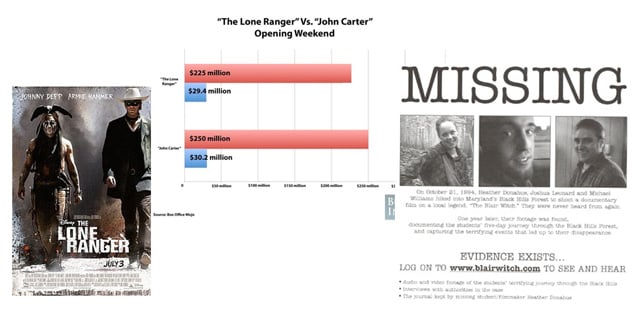
As another studio reels in the wake of a disappointing box office opening from a summer “Blockbuster”, ( the Lone Ranger brought in only 29.4 Million against a production budget of roughly 225 million), the industry continues to struggle with its love / hate relationship with Social Media.
When working in a movies favour, social media can have a dramatically positive impact. Look no further than one of the pioneers in the use of harnessing the power of the Internet and social media than the “Blair Witch Project”, which (fuelled by an aggressive social media campaign) grossed $248,639,099 worldwide compared to its final budget, which ranged between $500,000 and $750,000.
When working against it, Social Media can have a devastating impact (although it must be said this is much more likely to happen if the movie sucks!), horrific reviews, blog posts, commentary across twitter, facebook etc…. ensured that the Lone Ranger was destined to remain lonely with only a fraction of the intended audience bothering to show up on the opening weekend. No real surprise to anyone who performed a “listening audit” in the online landscape coming up to the July 4th weekend.
“One of the engines of that change is social media and its effect on the post-movie going experience. Thanks to Twitter and Facebook, viewers can actually affect the way a movie performs. A film’s audience can now help kill a movie or extend its life.” Michael Lyton, CEO of Sony Corporation
Studios know that there is a direct correlation between the number of consumers that are driven to watch their trailer online and the number of bums in seats on opening day. The downside being that they also know that if the online “chatter” is profoundly negative, no number of trailer views may be able to overcome the negative sentiment.
Interestingly, when they actually make good movies they don’t tend to have to worry too much about the latter!
Statistics
• 1 in 3 “connected” consumers saw a film as a result of something they read on a social network
• 33% of moviegoers decided to see a film before the TV campaign starts
• 18-34 year olds are responsible for 50% of all ticket sales
• 74% of people like to share/comment about their movie experiences
Stats by FilmFans.com
The new inbuilt search tool is designed to provide users with an easy way of finding topics of interest through their friends and connections on the social network. From photos, comments, status updates to social reviews, the tool is armed with what seems to be an impressive array of filters to bring up what you’re looking for.
Naturally, the strategy behind its introduction is to prolong users time spent on Facebook but just how useful will the tool be? And what kind of privacy concerns will we be facing? Only time will tell!
Robert K. Logan, another Canadian theorist recently updated Marshall McLuhan’s ideas in his seminal work, “Understanding Media: The Extensions of Man” to make sense of our social “mediums” such as Facebook and Twitter. McLuhan’s original work focused on explaining the role of all ‘mediums’ as they pertain to our communications with one another. Specifically, the medium that defines the messages that we’re able to express, this theory led to his famous and often quoted concept of “the medium is the message”.
McLuhan’s go-to example was always to explain that the medium of a light bulb allowed man to live in what were once dark spaces, and that medium had a profound effect on the communications we’ve had ever since.
At Social Media Week 2013 Tug will be talking about and celebrating Canada’s most famous media theorist and how the advent of social media marketing becomes a lot clearer when looking at it through his lens.
Read more about social media marketing:
It’s a sad day for Google Reader users like myself, as the popular RSS aggregator will finally shutdown for good tomorrow, 2nd of July. With only hours left, many have questioned Google’s decision but the real concern now is identifying alternatives. If you haven’t had the time to shortlist or tryout new aggregator sites, then here are two popular alternatives for you to choose from:
The popular social news site is one of many looking to pull the many users migrating away from Google Reader. Having launched on June 28th, users will find a hassle-free one click transition with the import of your Google data. The user interface is clean, and there are direct social sharing widgets available – giving you easy access to tweeting news of interest. Disadvantages lie in having to wait for its mobile Android app release, which is scheduled for launch before the end of July.
Offering the same effortless transition that Digg’s reader offers in terms of migrating data and feeds, Feedly is proving the most popular alternative on the web currently. It’s most notable USP is the fact it provides the backend for, and is integrated with, a number of popular apps including IFTTT, NextGen, Reeder and Press. With it’s mobile iOS and Android app already out now for sometime, Feedly is the more polished choice.
When I started using Twitter, Facebook and other social networks in 2007, I did not envisage for a second that it would one day become my full time job!
The rapid growth of these social networks and their position in society today, where they have become a powerful and popular communication tool, has been to say the least, unexpected.
Who remembers MySpace? That was the first social network I joined! It was the most popular social media platform from 2005 to 2008 and has declined with the arrival of Facebook, which gained huge popularity in 2008. What makes a social network last? Will the ‘MySpace story’ be one shared by another social network in the future?
Facebook, Twitter, LinkedIn, Pinterest, Instagram and Google+ are now the most used social networking services worldwide and continue to increase their user base.
At the moment Pinterest is flourishing; according to Nielsen in their 2012 Social Media Report it is the fastest-growing social network. Its audience is huge in the US and Pinterest pushes international growth, adapting its site to local countries (its first non-English website was launched in France in June 2013).
Will this growth slow down over time? Some articles have already pointed this out (Mashable, BusinessInsider).
In 2008, when MySpace surpassed Google as the most visited website in the United States, it would have been absurd to think that today it is not even the top 200 of most visited sites.
MySpace’s decline can be attributed to a number of reasons, with a key one being failing to understand their own identity. They have recently relaunched with a strong focus on music in order to create a niche for itself in the hotly competitive social media market. It can also be said that MySpace failed in the innovation of their product, take Facebook for instance, they have never stopped in their willingness to change and improve their product (Facebook chat in 2008, the iconic Like button in 2009, the Timeline in 2011, etc.).
Social Media is forever growing and it is a big challenge to predict which network will evolve and flourish and which will collapse. What’s your guess?



